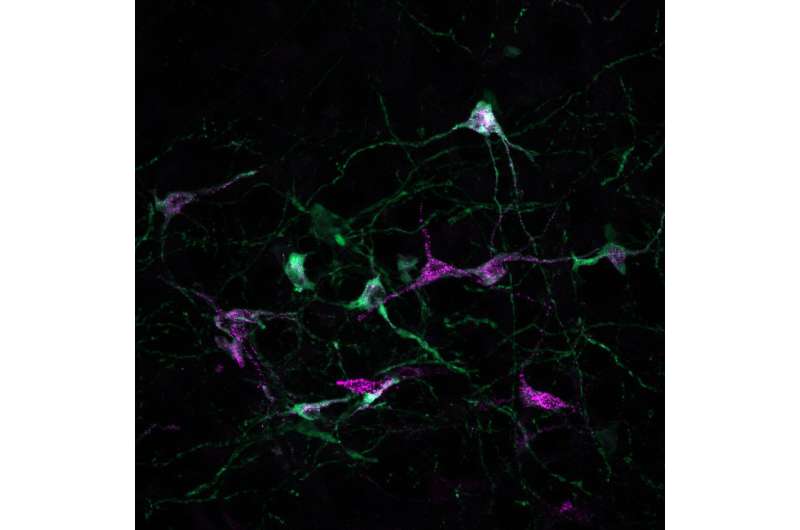This article has been reviewed according to Science X's editorial process and policies. Editors have highlighted the following attributes while ensuring the content's credibility:
fact-checked
peer-reviewed publication
trusted source
proofread
Uncovering the role of ATP in ovulation suggests new treatment for infertility

A research group led by Associate Professor Naoko Inoue (she/her), doctoral student Safiullah Hazim (he/him), Associate Professor Yoshihisa Uenoyama (he/him), and Professor Hiroko Tsukamura (she/her) of the Graduate School of Bioagricultural Sciences, Nagoya University, Japan, have discovered how ATP, the energy "currency" within cells, acts as a neurotransmitter in the brain and causes mammalian ovulation. Their results are expected to lead to the treatment of infertility in humans and ovulation disorders in livestock. The findings were published in The Journal of Neuroscience.
In the mammalian ovulation process, kisspeptin neurons in the anterior hypothalamus part of the brain act as the "ovulation center." In the ovulation process, follicle maturation induces increased circulating estrogen levels. This estrogen, in turn, causes the activation of kisspeptin neurons and a surge in luteinizing hormone (LH) that leads to ovulation. Therefore, discovering how the increased estrogen stimulates the kisspeptin neurons and the release of the LH surge would allow ovulation to be induced.
Since kisspeptin neurons have an ATP receptor, called P2RX2, the research group decided to test whether stimulating the receptor with ATP could cause the LH surge that leads to ovulation in rats. When they administered ATP in the vicinity of the anterior hypothalamic kisspeptin neurons, P2RX2 excited the kisspeptin neurons, inducing a massive release of LH.
They tested their results by administering a drug that blocks P2RX2 into the vicinity of the kisspeptin neurons. They found that the LH surge did not occur, and that ovulation was significantly reduced even in the presence of an ovulation-inducing dose of estrogen. Similarly, when the group tested gene-modified rats without the kisspeptin gene (Kiss1), they found that ATP administration did not induce the LH surge, showing the importance of both the kisspeptin neurons and their ATP receptor.
They also found that hindbrain purinergic neurons, which release ATP as a neurotransmitter, could be activated by pre-ovulatory levels of estrogen. As these neurons project into the vicinity of the kisspeptin neurons in the hypothalamus in the brain, they concluded that ATP derived from hindbrain purinergic neurons and their receptor in kisspeptin neurons are involved in ovulation.
"Our findings are the first discovery of the involvement of ATP in inducing ovulation," Inoue said. "This is a new insight into the regulatory mechanism of ovulation in mammals. Our results are expected to be applied to ovulation disorders in livestock, and to infertility treatment in human reproductive medicine."
Although it is difficult to use ATP for fertility treatment because many types of cells in the body have ATP receptors, the group believes that as hindbrain purinergic neurons use ATP as a transmitter, the neurons could be activated and be a potential solution to the problem of infertility in humans. "Activating purinergic neurons would stimulate the local release of ATP in the vicinity of kisspeptin neurons," Inoue said. "This ATP may activate kisspeptin neurons to induce ovulation. We hope our discovery leads to the treatment of ovulation disorders."
More information: Naoko Inoue et al, Hindbrain Adenosine 5-Triphosphate (ATP)-Purinergic Signaling Triggers LH Surge and Ovulation via Activation of AVPV Kisspeptin Neurons in Rats, The Journal of Neuroscience (2023). DOI: 10.1523/JNEUROSCI.1496-22.2023
















